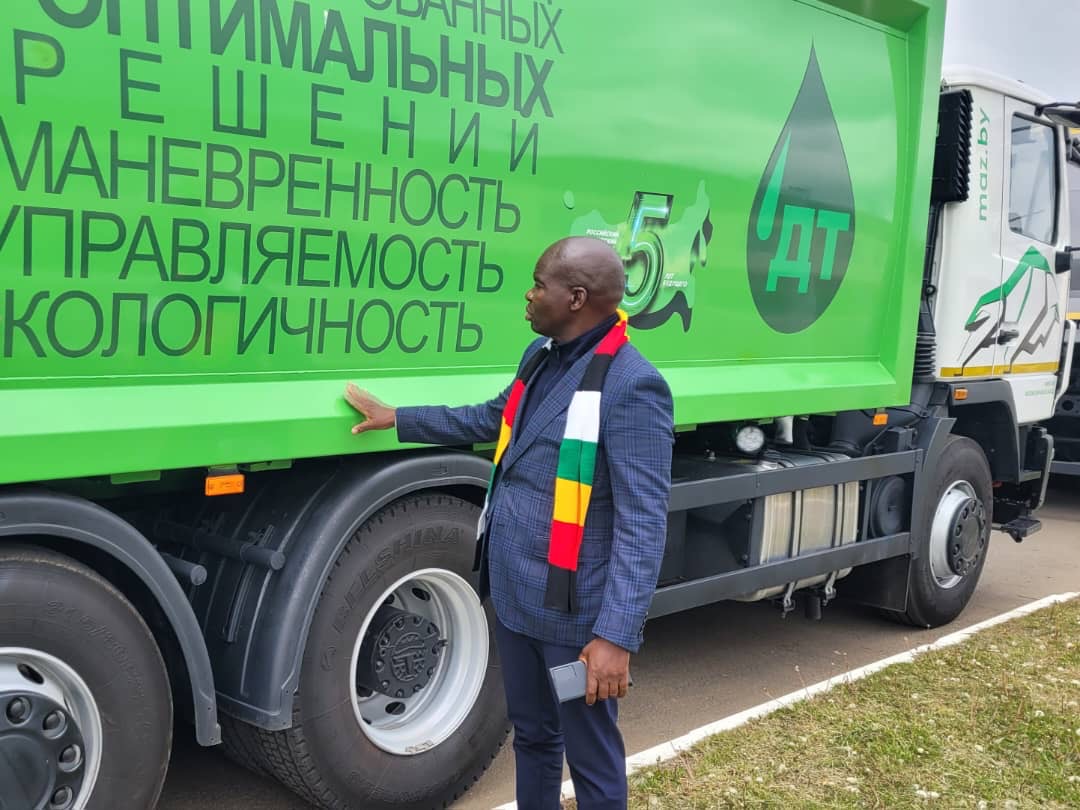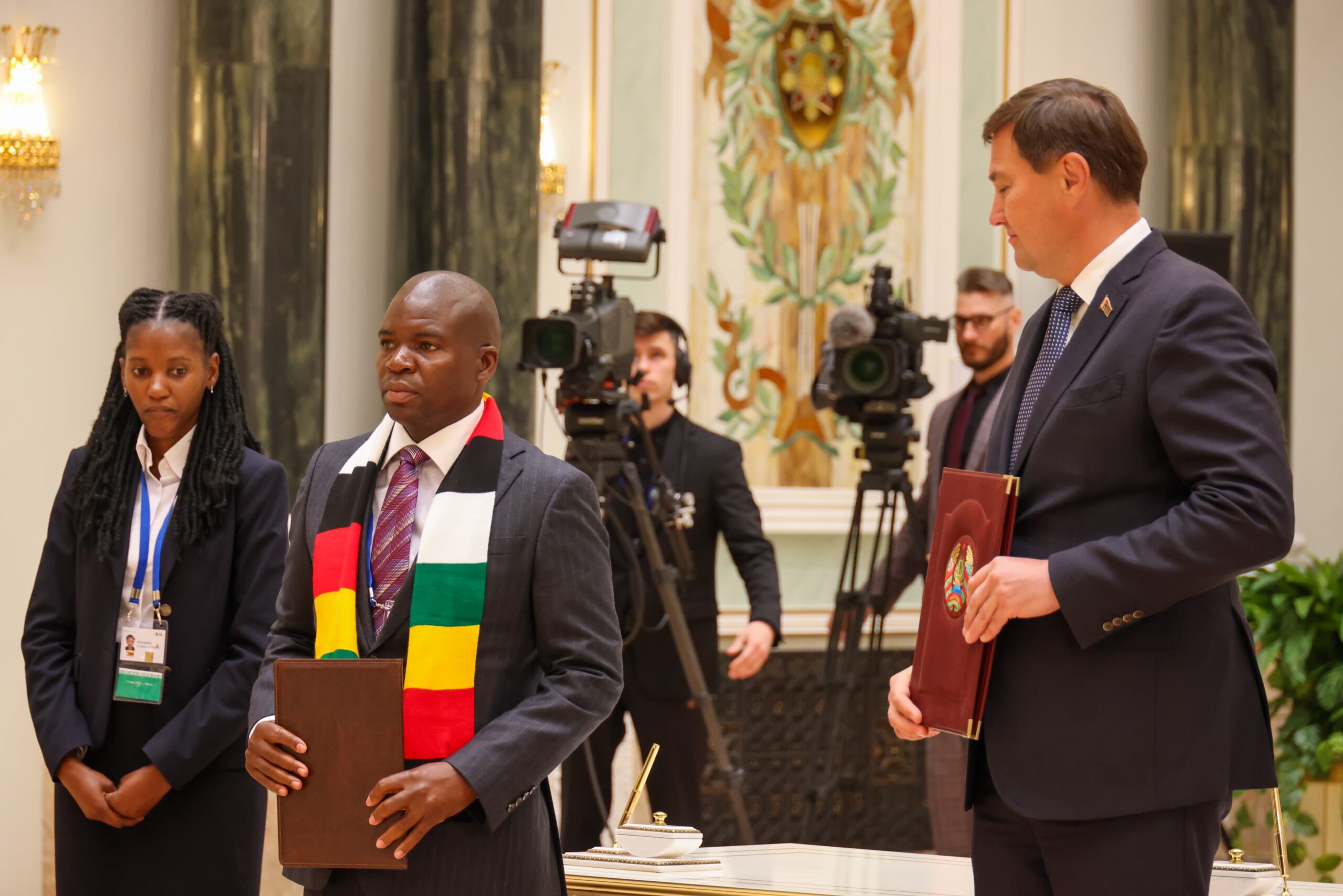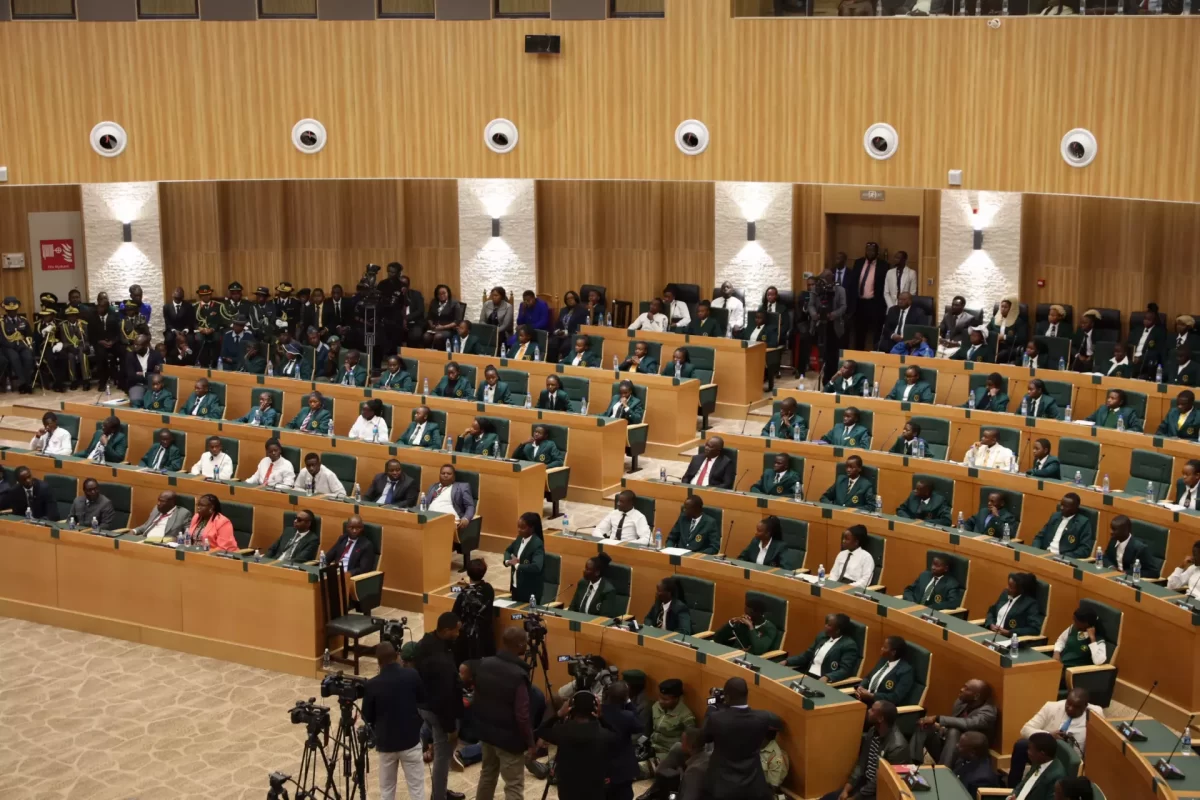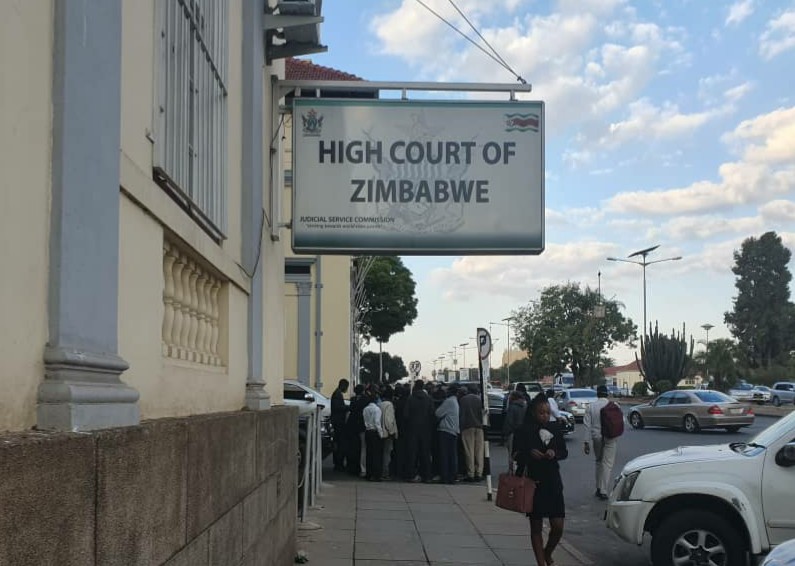BULAWAYO – Geo Pomona, the company controversially handpicked by the government to manage Harare’s waste management services says it is expanding to all provinces, even without agreements with other local authorities.
Geo Pomona is set to receive hundreds of refuse and street cleaning trucks from Belarus within months under an opaque arrangement underwritten by the Zimbabwe government.
Geo Pomona executive chairman and CEO Dilesh Nguwaya, speaking in Belarus after his company signed a Memorandum of Understanding with the Belarus government, said: “Geo Pomona has gone a step up because we want to replicate what we are doing in Harare to all the other nine provinces where we are going to deal with all the refuse waste collection.
“We’re going to collect the whole area, and we are going to manage all the waste remaining in the country.”
He said they had “secured trucks, equipment and water treatment plants” under the arrangement facilitated by the Zimbabwe government, but whose financial details have not been publicly disclosed.
Revelations that Geo Pomona will soon take over waste management services in all major towns and cities will come as a shock to some of the local authorities who have never had engagements with the company.
Nguwaya said the expansion to cover the whole of the country was on the strength of “cabinet authority” granted in 2022, suggesting the company will once more secure contracts without being subjected to a public tendering process.


Geo Pomona was controversially imposed on the city of Harare in 2022 by the local government ministry. Initially, the company would manage the city’s Pomona dump site and convert waste to energy to generate electricity.
The company immediately started billing the city of Harare $40 per tonne for waste delivered to the dumpsite, and when the council said it could not afford, the government assumed the payments directly and said these would be offset against the capital’s allocation of devolution funds.
The 30-year arrangement imposed on Harare a requirement that the city should deliver 550 tonnes of waste or a minimum 200,750 tonnes per year – translating to US$8.03 million for the company in the first year.
By the second year, the daily tonnage delivery was to rise to 650; going up to 750 in the third year; 850 in the fourth year and 1,000 tonnes per day at the start of the fifth year, meaning Harare would pay Geo Pomona a minimum US$14.6 million annually starting in 2027 until 2052.
The City of Harare which has a shortage of refuse trucks and regularly struggles to fuel its fleet has failed to keep up with the tonnage requirement, and so Geo Pomona is poised to take control of the entire chain – from street sweeping, refuse collection to dumping.
The initial deal for Harare was $320 million in favour of Geo Pomona and its Netherlands-registered parent company, Geogenix BV. The company was registered by Mirel Mërtiri, an Albanian businessman linked to corruption in his home country.
With the arrangement expanding to cover the whole country, Geogenix and its local partners could be targeting over US$1 billion from local authorities.
While the waste-to-energy conversion is yet to start at Pomona, some critics of the dump site’s takeover admit the work the company has done there is impressive after years of local communities living under a cloud of smoke from fires started by waste pickers.
Nguwaya, a regular guest at state functions and close associate of President Emmerson Mnangagwa’s twin son, Sean Mnangagwa, was previously charged with corruption over Covid-19 procurement contracts with his company Drax International but a court acquitted him.















